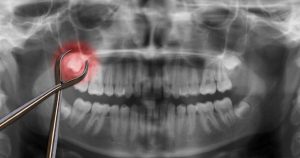 Even though our teeth are strong and intended to last a lifetime, there are factors that can make tooth loss necessary. Some reasons that can result in necessary tooth extraction are an overcrowded mouth, an infection, or severe gum disease. If you do find yourself looking for help with a Chattanooga tooth extraction, our team at Ocoee Oral Surgery can assist. In the meantime, here are some frequently asked questions about tooth extraction you may find helpful.
Even though our teeth are strong and intended to last a lifetime, there are factors that can make tooth loss necessary. Some reasons that can result in necessary tooth extraction are an overcrowded mouth, an infection, or severe gum disease. If you do find yourself looking for help with a Chattanooga tooth extraction, our team at Ocoee Oral Surgery can assist. In the meantime, here are some frequently asked questions about tooth extraction you may find helpful.
Q: Is a tooth extraction painful?
A: Generally speaking, sedation techniques are used with tooth extraction to ensure patient comfort during the procedure. Talk with your oral surgeon about your specific scenario to figure out what makes most sense for you.
Q: What is the recovery period like after a tooth extraction?
A: After your tooth extraction, your oral surgery team will send you home with detailed instructions to follow during your recovery.
Q: What conditions could result in a necessary tooth extraction?
A: Things like overcrowding, impacted teeth, dental decay, and infection could result in a necessary tooth extraction. Your oral surgeon will assess your situation, and make recommendations for the best course of treatment.
Q: What will a tooth extraction procedure involve?
A: Each patient and situation is different, and will depend on the severity of the dental problem at hand. Simple extractions often involve a local anesthetic, and pulling of the affected tooth. More complicated extractions can require sedation, surgical extraction, and stitches. Your oral surgeon will discuss the particulars of your extraction with you to ensure you understand, and that no questions go unanswered.
Q: What can you expect after a tooth extraction procedure?
A: It is normal to feel some discomfort after the anesthesia wears off from your tooth extraction. You may also experience some swelling or residual bleeding for about 24 hours after the procedure. You can take pain relievers as needed, use ice packs to reduce swelling, and gently rinse your mouth with salt water to encourage healing.
Q: What is “dry socket,” and how do you avoid it?
A: Dry socket is a painful condition that can occur after a tooth extraction. After your tooth extraction, a blood clot will form in the gum area where the tooth was. The blood clot is critical in the healing process, so it is important to be careful to preserve it. A broken or dislodged blood clot can cause complications like dry socket, as well as pain.
Q: How can I tell if I have dry socket?
A: You can identify dry sockets through several tell tale signs. If you can see bone where your tooth used to be, you are probably experiencing dry socket. Another symptom is a throbbing pain in the jaw area that may also spread from the tooth extraction site up to the ear, eye, temple, or neck area. Other signs include bad breath, and a lingering, unpleasant taste in the mouth. If you’re experiencing these symptoms, you should contact your dentist or oral surgeon right away.
Q: How much does a tooth extraction cost?
A: Again, pricing for tooth extraction will depend on the specifics of the procedure needed. Your oral surgery team at Ocoee will break down pricing for your tooth extraction procedure and answer any questions you may have about cost, billing, and insurance.
Q: What do I do after my tooth extraction?
A: Sometimes unfilled gaps in your teeth can lead to other problems as surrounding teeth shift. Your dentist or oral surgeon may suggest filling spaces with veneers, bridges, or dental implants to avoid further problems.
If you have any other questions or concerns, or need to set up a consultation to discuss a Chattanooga tooth extraction need, contact our team at Ocoee Oral Surgery. We’d be happy to help however we can.







